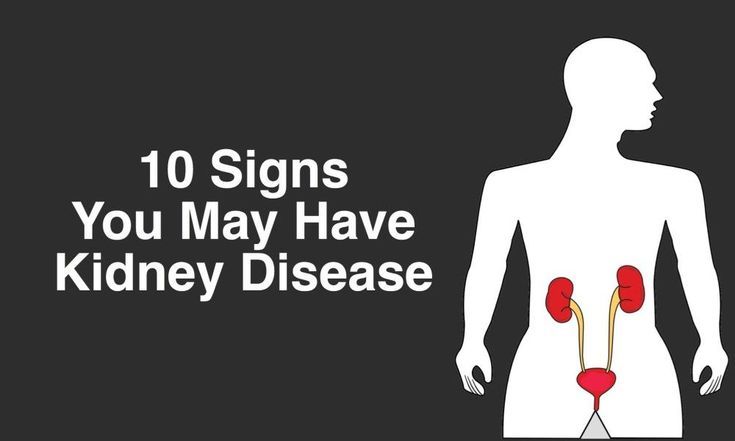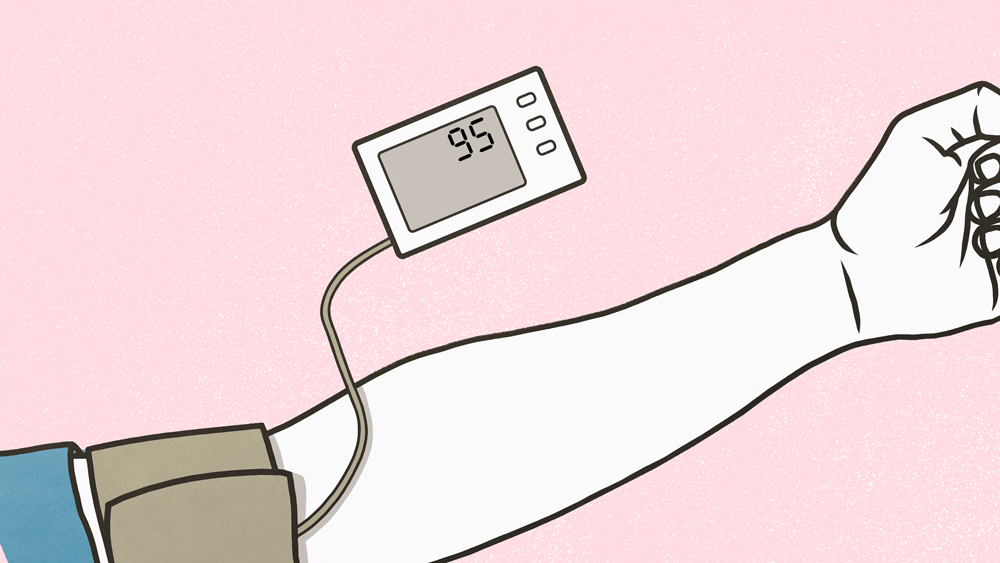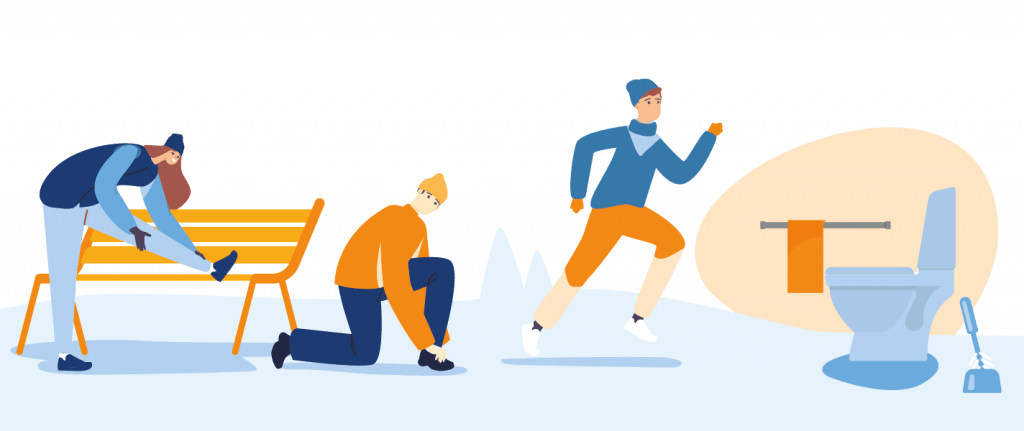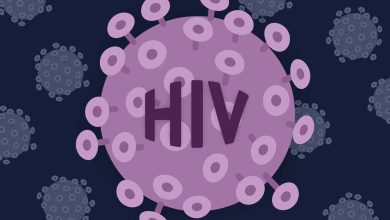
10 Signs You May Have Kidney Disease

Kidney disease is a scary and sometimes serious condition that can be difficult to recognize. In this article, we’ll talk about 10 signs of kidney disease so you can be on the lookout for early symptoms.
But first, here’s a quick refresher on how your kidneys work. Your kidneys filter waste from your blood and release that waste in your urine.
5 Tips On How To Reverse Fatty Liver Disease
But if your kidneys start to malfunction, they may stop properly filtering and cleansing your blood, which leads to wastes building up and can harm other organs. If you notice any of the following signs, see your doctor immediately:
10 Signs You May Have Kidney Disease
1. Abnormal urine color

Have you ever noticed that your urine looks a little off? Before you dismiss it as nothing to worry about, you should know that the color of your pee can actually be a sign of kidney disease.
What does healthy pee look like?
Urine is typically light yellow and clear. If it is darker than usual, or has an unusual hue, it could be a sign of kidney disease.
What do different colors mean?
Dark yellow: Your body is trying to tell you that you’re dehydrated. Drink some water!
Pink or red: This could be a sign of blood in your urine, which may indicate kidney disease. Talk to your doctor ASAP!
Blue or green: You may have eaten something with food coloring in it. However, if the color doesn’t go away after 24 hours, this could also indicate an infection. See your doctor!
2. Blood in the urine

Blood in the urine is often a sign of a urinary tract infection, but it can also be a symptom of kidney disease.
Blood in the urine can be caused by many different factors, such as an infection or medical condition like kidney stones. If you have blood in your urine, it’s important to see your doctor right away.
Kidney disease occurs when your kidneys are damaged and aren’t working properly. This can lead to serious health problems if not treated properly.
3. Decreased mental alertness
Decreased mental alertness is a sign that you may have kidney disease.
Kidneys are the organs that filter harmful substances from the blood, including urea and creatinine, which are waste products of protein metabolism.
When kidneys become damaged or diseased, they can no longer remove these substances from the blood. Too much urea and creatinine in your blood can cause decreased mental alertness.
4. Difficulty breathing

Difficulty breathing is a common symptom of kidney disease. If you’re experiencing this, it could be because your kidneys are failing.
Kidney disease causes a buildup of waste products in your blood, which can cause fluid to build up in your body. This can lead to swelling in your lungs, making it harder for you to breathe.
If you’re having trouble breathing and think it may be a sign of kidney disease, talk to your doctor right away.
5. Fatigue and weakness

One sign that you may have kidney disease (and should get checked) is fatigue, or chronic tiredness.
This happens because your kidneys aren’t working as well as they should, so your body isn’t able to process the waste from your blood correctly. That makes you tired!
Another sign is weakness, or a lack of strength. When your kidneys aren’t working as well as they should, it’s harder for nutrients and other substances to be transported throughout your body, making you weaker.
If you’re experiencing either of these symptoms, please get checked. It could be nothing—but it could also be a sign of something serious!
6. Headaches

Are you getting headaches more often than usual?
If so, you may have kidney disease.
Kidney disease can be caused by many things, including diabetes, high blood pressure, and high cholesterol.
If you have any of these conditions, it’s important to manage them as best you can. That way, you can reduce your risk of developing kidney disease.
But what if you don’t have any of these conditions? What if the cause of your headaches is something else entirely? In that case, it might be time to talk with your doctor about other possible causes for your headaches.
7. High blood pressure (hypertension)

If you have high blood pressure, it could mean you’re on your way to kidney disease.
High blood pressure (hypertension) is extremely common. It affects more than one in three adults, according to the Centers for Disease Control and Prevention (CDC).
While most people think of hypertension as one of the leading causes of heart disease and stroke, it can also lead to chronic kidney disease (CKD).
If you have high blood pressure, talk with your doctor about getting a check-up for CKD. There are steps you can take now to protect your kidneys and prevent the onset of kidney disease.
8. Increased need to urinate at night

Increased need to urinate at night You May Have Kidney Disease
Increased need to urinate at night is a symptom of kidney disease. It may also be a symptom of other conditions, so if you have this symptom, see your doctor right away.
If you have increased need to urinate at night, it’s also important to know that you may be able to manage it with diet and lifestyle changes.
9. Nausea and vomiting

Nausea and vomiting are common symptoms of kidney disease. They’re also common in general, so why would these symptoms mean you have kidney disease?
Well, if you have nausea and vomiting, and your symptoms are accompanied by other signs of kidney disease—like less urine output, swelling in the face or hands, or difficulty sleeping—you should definitely talk to your doctor about it. The same goes if you notice blood in your urine or if your skin starts to itch.
These symptoms can be very serious, so if you’re feeling sick or experiencing any of these signs and are worried they might mean kidney disease, please don’t hesitate to talk to your doctor!
10. Swelling of feet and ankles

One of the most common symptoms of kidney disease is swelling—usually in the feet, ankles, and legs.
This symptom is most common in people who already have high blood pressure or diabetes, as well as those who are 60 or older. If you fall into one of these categories, keep an eye out for swelling that appears or gets worse over time.
Swelling happens because your kidneys are not working properly to get rid of excess fluid from your body. When this happens, the fluid builds up and causes puffiness in areas like your ankles and legs.
Kidney disease is a scary and sometimes serious condition that can be difficult to recognize. In this article, we’ll talk about 10 signs of kidney disease so you can be on the lookout for early symptoms.
But first, here’s a quick refresher on how your kidneys work. Your kidneys filter waste from your blood and release that waste into your urine.






